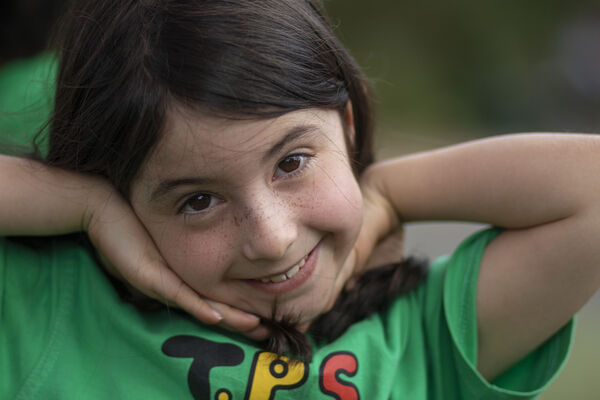Overview
Alignment with Be You Domains
-
Learning Resilience
-
Early Support
-
Responding Together
Alignment with Australian Curriculum
- English
- Health and PE
Target audience
- Primary school
Target groups
- Individual
- Small group
- Whole class
Aims
KooLKIDS uses role-play and interactive media presentations to empower children to understand their strengths and emotions, develop self-esteem and learn empathy and friendship skills.Program theory
KooLKIDS is based on research into the contextual and psychosocial determinants of the development of antisocial behaviour in young children. It also draws on evidence-based cognitive behavioural theory, self-regulation, and social skills interventions for children and adolescents with conduct issues.Topics
Self-esteem, cognitive restructuring (ABC model of thinking), emotion regulation, conflict management, empathy training, friendship skill building and social connectedness.Cost
Program structure
KooLKIDS is delivered over 13 sessions at one hour each. The program usually spans a semester in a school year but can be flexibly delivered to fit the needs of the school or organisation.Instructor
- Educator
- Wellbeing leader
Instructor training
Training is offered in both face-to-face (where feasible) and online modalities. The facilitator will attend a KooLKIDS training workshop that covers the four KooLKIDS modules and also topics such as the KooLKIDS model, childhood risk and resilience, early intervention, cognitive behavioural strategies, life mapping, role playing, and content-specific work. At the end of the workshop the Facilitator will be able to successfully deliver the KooLKIDS program and will demonstrate competency in the following skills and knowledge: Show an understanding of the KooLKIDS model; Demonstrate competence in utilising pre- and post-intervention evaluation methods to collect baseline measures and review outcomes of the program; Demonstrate competence in assisting in the 13 sessions; Demonstrate a capacity to work across ability levels and, Demonstrate a capacity to be flexible with the materials and adapt the program to suit the particular classes and children with whom they are working.Supporting resources or materials available with program
- Manual
- Online webinars
- Workbook
Ongoing support
Instructors will have access to support while running the program. There will also be regular email contact and information provided for instructors throughout delivery.Parent involvement
- Written information provided to parents
Origin of program
Australia
The University of Queensland
Program authors
Annemaree Carroll, Stephen Houghton
- Social Sciences (Building 24) The University of Queensland,St Lucia QLD 4072 Australia
Ratings
Summary of evidence factors
This is a summary of the evaluation or research study characteristics that contribute to the program’s evidence rating.
|
Positive impact on at least one outcome for children and/or young people?
The study reported positive outcomes. |
Yes |
|---|---|
|
Link between program description and theory of change
Theory of change refers to whether there was a comprehensive description and illustration of how and why a desired change is expected to happen in a particular context. |
Comprehensive |
|
Study design
Type of study design reported. |
Quasi-experimental |
|
Independence
The degree to which the program authors were involved in the research. |
Semi |
Summary of implementation factors
This is a summary of the program’s characteristics that contribute to its implementation rating.
|
Feedback sought from participants
Participants enjoyed the program and understood its benefits. |
Yes |
|---|---|
|
Feedback sought from instructors
Instructors enjoyed the program and understood its benefits. |
Yes |
|
Groups program is not suitable for
Groups the program wouldn't be suitable for or that required further research to determine suitability. |
Not assessed |
|
Training provided during study
The model of training provided. |
Face to face, all instructors, in person |
|
Ongoing instructor support provided during study
Whether ongoing support is provided. |
Yes |
Context
This is a summary of the context in which the evidence for the program was established.
|
Study Participants
Pre school, primary school (Foundation to Year 6), secondary school (Years 7 to 12). |
Primary school |
|---|---|
|
Country of Study/s
The location in which the evidence or research was conducted. |
Australia |
|
Location of Study/s in Australia
The state (or states) the program was assessed in Australia. |
QLD WA |
|
Evaluation of program in culturally and linguistically diverse populations
Provider has included culturally and linguistically diverse people when assessing the program. |
No |
|
Evaluation of program in Aboriginal and Torres Strait Islander children and young people
Provider has included Aboriginal and Torres Strait Islander peoples when assessing the program. |
No |
|
Evaluation of program in low socioeconomic groups
Program has evaluated a diverse socio-economic population in their research. |
Yes |
|
Developmental based adaptations to program design and delivery
Shorter sessions for younger students or activities are adjusted for age appropriateness. |
No |
|
Evaluation of program in children and young people with disability and/or learning difference
Provider has included participants with a disability or learning difference when assessing the program. |
Yes |
Last updated: 27 November 2025
